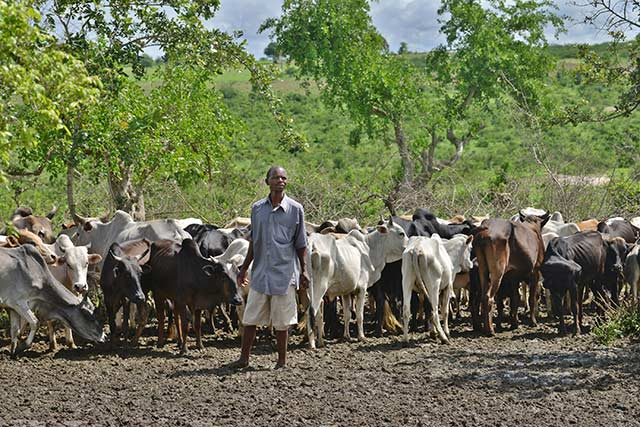The Federal Ministry of Livestock Development is a recently established body aiming to revolutionize livestock farming in Nigeria.
This ministry’s inception marks a significant milestone in the country’s agricultural sector, with a focus on boosting productivity, ensuring sustainability, and improving the livelihood of those involved in livestock farming.
Purpose and Objectives
The Federal Ministry of Livestock Development was created to address the growing needs and challenges within Nigeria’s livestock sector. The ministry’s primary objectives include:
- Enhancing Livestock Productivity: Implementing modern farming techniques and technologies to increase the productivity of livestock farms.
- Sustainable Farming Practices: Promoting environmentally friendly and sustainable practices to ensure the long-term viability of livestock farming.
- Improving Livestock Health: Providing better healthcare facilities and services for livestock to reduce mortality rates and improve overall health.
- Economic Growth: Stimulating economic growth by increasing the contribution of the livestock sector to Nigeria’s GDP.
Key Initiatives
The ministry has outlined several key initiatives to achieve its objectives:
- Training and Capacity Building: Providing training programs for farmers on modern livestock farming techniques and best practices.
- Research and Development: Investing in research to develop new technologies and methods to improve livestock farming.
- Infrastructure Development: Building and upgrading infrastructure such as veterinary clinics, feed mills, and slaughterhouses to support the livestock sector.
- Financial Support: Offering financial assistance and subsidies to livestock farmers to encourage investment and growth in the sector.
- Policy Implementation: Developing and enforcing policies that support the sustainable and ethical treatment of livestock.
Benefits for Farmers
The establishment of the Federal Ministry of Livestock Development brings numerous benefits to livestock farmers across Nigeria:
- Increased Productivity: Access to better resources, training, and technologies will enable farmers to increase their productivity and profitability.
- Enhanced Livelihoods: By improving the overall health and productivity of livestock, farmers can achieve higher incomes and better living standards.
- Sustainable Practices: Adoption of sustainable farming practices ensures the long-term health of the environment and the livestock industry.
- Support and Resources: Farmers will have access to a range of support services, including financial assistance, veterinary care, and infrastructure development.
National and Global Impact
The new ministry is expected to have a significant impact both nationally and globally:
- Economic Growth: By boosting the livestock sector, the ministry aims to contribute significantly to Nigeria’s economy, creating jobs and increasing exports.
- Food Security: Improved livestock productivity and health will enhance food security in Nigeria by ensuring a steady supply of meat, dairy, and other livestock products.
- Environmental Sustainability: Promoting sustainable practices will help protect Nigeria’s natural resources and reduce the environmental impact of livestock farming.
- Global Standards: By adopting international best practices, Nigeria’s livestock products can compete more effectively in global markets.
Challenges and Future Outlook
Despite the promising prospects, the Federal Ministry of Livestock Development faces several challenges:
- Funding: Securing adequate funding for the various initiatives and projects is a significant hurdle.
- Implementation: Ensuring effective implementation of policies and programs across the diverse regions of Nigeria can be challenging.
- Resistance to Change: Encouraging farmers to adopt new technologies and practices requires overcoming resistance to change and traditional methods.
However, with a committed approach and strategic planning, the ministry is poised to transform Nigeria’s livestock sector.
The Federal Ministry of Livestock Development represents a major step forward for Nigeria’s agricultural sector. With its focus on enhancing productivity, sustainability, and farmer livelihoods, the ministry has the potential to significantly impact the economy and the lives of millions.
























